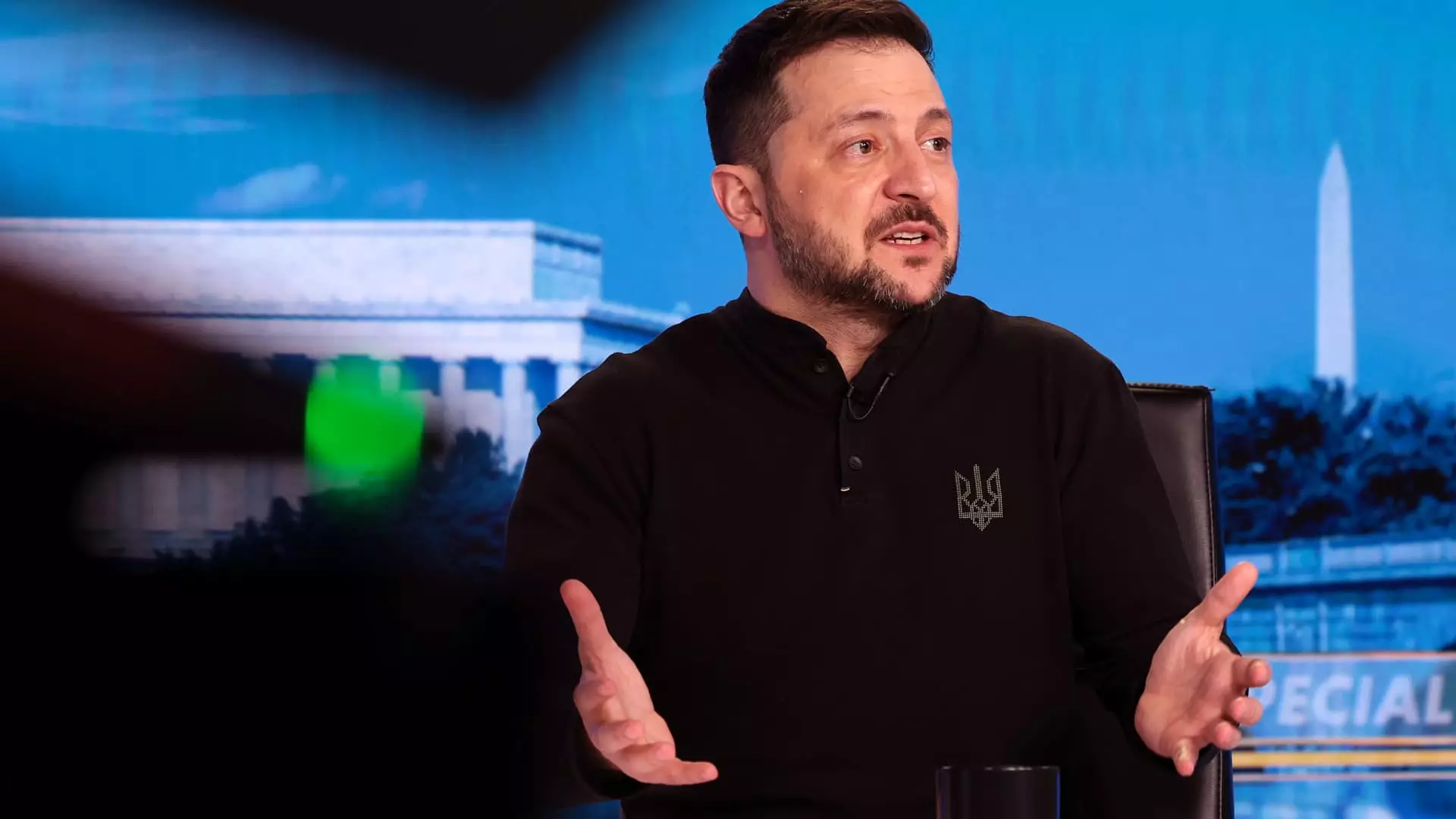The diplomatic landscape is often fraught with tension, but nothing epitomizes this more than the recent clash between Ukrainian President Volodymyr Zelenskyy and American political stalwarts including former President Donald Trump and current Vice President JD Vance. This interaction not only underscored the persisting complexities of U.S.-Ukrainian relations, but it also revealed the precariousness of Zelenskyy’s position as he fights for continued support against Russian aggression.
The Oval Office confrontation turned contentious when Zelenskyy firmly rejected the notion that he owed Trump an apology for perceived disrespect. Trump’s accusation was Met with Zelenskyy’s staunch assertion that such quarrels are detrimental to both parties. His refusal to relent in a moment rife with potential diplomatic fallout could be seen as a calculated risk in a game of international politics where stakes are high, and the future of Ukraine hangs in the balance.
The Pursuit of Peace: A Fragile Proposition
During a subsequent interview with Fox News, Zelenskyy emphasized the gravity of the situation, articulating a sincere message that without sustained American support, Ukraine’s ability to fend off the Russian military could be severely compromised. The Ukrainian leader’s remarks reflect an alarming reality for his nation: peace with an adversary as unyielding as Russian President Vladimir Putin requires more than just goodwill; it demands practical and military backing.
Zelenskyy’s admonishment of the idea that diplomacy could easily lead to peace starkly contrasts with Vance’s assertions. He poignantly pointed out past instances where agreements made with Russia were quickly scuttled by Kremlin actions. This rift in perspectives is emblematic of a larger schism within U.S. political discourse regarding the best approach to assist Ukraine while also considering domestic implications.
While expressing his gratitude for the support Ukraine has received from the U.S., Zelenskyy’s words could simultaneously be perceived as a diplomatic balancing act. By acknowledging past aid from Trump, he might be aiming to mend the frayed ties, but the specter of political fallout looms large. His unwillingness to apologize, despite an evident desire to “have strong relations,” signals the difficulty of navigating these turbulent waters. In diplomatic environments, the lines between gratitude, obligation, and respect can quickly become tangled.
The fallout was not lost on Trump, who claimed that Zelenskyy had “overplayed his hand” and seemed more interested in extending the conflict rather than seeking resolution. The former president’s sentiments were echoed by Vance, who criticized Zelenskyy for failing to express thanks publicly. Such accusations bring into question the responsibilities of wartime allies, particularly when personal political dynamics intertwine with international relations.
While the U.S. political landscape appears divided, European and NATO leaders have swiftly voiced their support for Ukraine following the incident. Their firm statements highlight a collective acknowledgment that Europe has a substantial role to play in stabilizing the situation and ensuring Ukraine’s sovereignty. EU High Representative Kaja Kallas, in a pointed social media response, expressed that it is incumbent upon European nations to step up their commitment to Ukraine, emphasizing that they must “continue to fight back the aggressor.”
This unified stance from European leaders underscores a critical juncture in the international response to the Russian threat. As the U.S. grapples with its internal divisions regarding military support for Ukraine, European nations appear resolute in providing assistance. This divergence in approach could further complicate the geopolitical landscape as both sides strive to deter Russian advances.
As the narrative unfolds, it remains to be seen how Zelenskyy’s presidency will navigate the ongoing challenges of maintaining relations with vital allies like the United States while keeping the war-torn nation resilient against external threats. The nuances of his interactions, particularly in volatile environments like the Oval Office, may set the tone for Ukraine’s future diplomatic endeavors.
Zelenskyy’s ability to effectively communicate his country’s dire needs while also addressing U.S. political sentiments may ultimately dictate the degree of support Ukraine receives in the coming months. This delicate balancing act highlights the broader challenges faced by leaders engaged in precarious international affairs, where every word carries substantial weight, and the path forward is fraught with complexities.



Leave a Reply